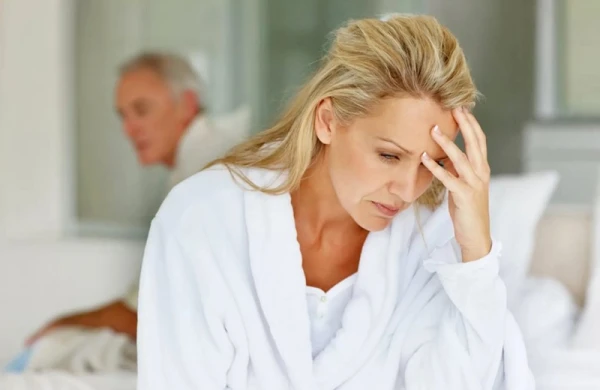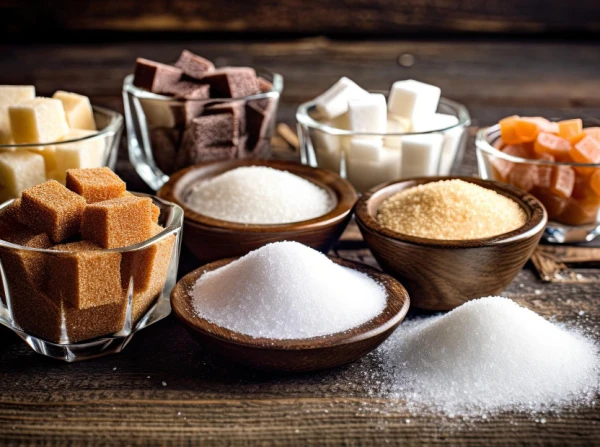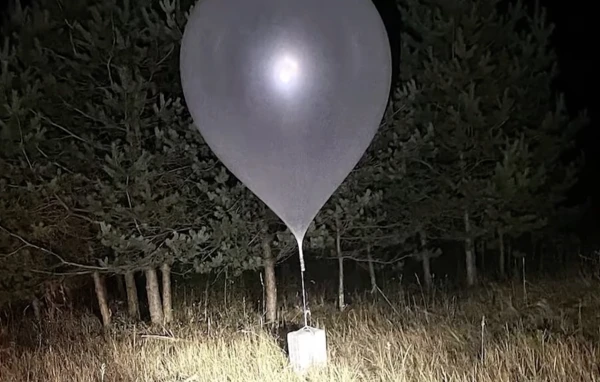
Perimenopause is the several years leading up to menopause when hormones begin to play by new rules. Mood swings, disrupted sleep, and the body reacting differently mean that suddenly what used to easily turn it on stops working. This is not a "breakdown of femininity" but a natural stage that can be assisted. Sexologist Olga Vasilenko explained why desire is losing ground and how to gently restore interest in intimacy.
Why Desire Fades Right Now
At the forefront are hormones. Levels of estrogen and progesterone become uneven, and free testosterone is often lower than usual. The body responds with decreased sexual sensitivity, mood swings, and fatigue, plus vaginal dryness and discomfort during sex arise, causing the brain to associate intimacy with tension rather than pleasure.
Everyday life contributes as well. "Lack of sleep, chronic stress, worries about growing children and work drain resources; add to this medications that sometimes dull libido, most often antidepressants of certain groups, some antihypertensives, and antihistamines. There are also medical reasons — uncontrolled hypothyroidism, iron deficiency, depression, back or pelvic pain make the body less responsive," explains the expert.
Restructure the Intimacy Script and Talk Like Adults
Start with an honest dialogue about what is changing and what feels good right now. Restructure the script to fit the new response of the body. Longer foreplay, more time for hugs and kisses, a focus on caresses that are truly enjoyable. Agree on a "spectrum of intimacy" that includes tenderness, eroticism, and sex, but without the obligation to always reach a specific conclusion. This relieves pressure and restores exploratory interest.
Eliminate Pain and Dryness, Because Pleasure is Built on Comfort
Choose a lubricant: silicone is more convenient for prolonged play, water-based is better for toys and sensitive skin, and for extra nourishment, opt for one with hyaluronic acid. Vaginal moisturizers for daily use can be helpful for several weeks. If dryness is pronounced, discuss local estrogens or DHEA in the form of suppositories or cream with your doctor; this restores the mucosa, increases sensitivity, and makes touch pleasurable again.
Support the Body with a Routine That Restores Energy
Sleep is the first enzyme of libido, so organize your schedule and put away gadgets at least an hour before bed. "Strength training twice a week and brisk walking help muscles, joints, and mood, and slightly elevate overall tone. You need more protein in your diet, as well as vegetables and water, while alcohol and sugar often diminish desire the next day, so they should be limited," says the doctor.
Seek Medical Help if "Just Talking" Didn't Work
Get basic tests done and review the medications you are taking; sometimes, adjusting the dose or switching the medication is enough to restore desire. If there are pronounced hot flashes, anxiety, and insomnia, it makes sense to discuss hormone therapy with a gynecologist. When symptoms subside, the body becomes sensitive to pleasure again. Additionally, pelvic floor physiotherapy can be introduced if there are muscle tightness or discomfort during penetration.
Remember, perimenopause changes the logic of the body but does not eliminate pleasure and intimacy. If you eliminate pain and dryness, align your routine with the body's needs, have an honest conversation about the rules of the new game, and timely involve a doctor, libido stops being a lottery.













